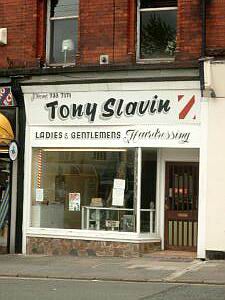Dictionary corner III
PART THREE: M-P
M is for...
MERSEY, THE RIVER
Liverpool isn't on or next to or served by the Mersey. The Mersey serves, swallows and surrounds Liverpool. The city is only one instrument in the river's orchestra of sounds and sensations. It commands dozens of different landscapes, emotions, even weather systems, as it makes its way into the Irish Sea through one of the widest estuaries in the country. It's impossible to turn your back on the Mersey. If you're down by the riverside, you can't stand facing away from it. Its ponderous expanse of weight, watery potential hypnotises you and draws you towards it. As one of the most majestic but untamed rivers in the land, the Mersey also demands your respect. I saw it on my first visit to the city, cloaked in a misty rain, and I knew there and then this was the city in which I wanted to live. I later realised I'd mistaken gloomy romanticism for plain gloom. Yet in its own way this was just as alluring. For what use are rivers unless they reflect, not only your image, but also your mood?
N is for...
NO FRILLS BUS
This demented means of transport operated around the city in the mid-90s, ostensibly offering the lowest prices in town a la Kwik Save, after whose budget range the bus was colloquially dubbed. It was painted completely white save for a horrible giant logo on the side, and nobody I knew ever rode it. In fact, I never saw it ever picking up any passengers. As such it cultivated an attitude of bemused mystery amongst those who glimpsed it, fuelled chiefly by puzzlement at how it actually made any money. Suffice to say the No Frills bus vanished with just as little announcement as it arrived, in a selfless manner befitting its selfless name. That was back when a student bus fare to anywhere in the city was 40p. It's treble that now.
O is for...
051
The cinema, not the dialling code. I used to go to this estimable venue once a week, in the days when I made it my business to go to see a new film every week, and also coincidentally when I worked as a reviewer on my student newspaper and was hence able to occasionally get free tickets. I remember seeing The Pillow Book by Peter Greenaway in this cinema and being the only one left by the time it ended. It was the most magnificent of establishments with the nicest, largest, most comfortable, most seat-esque cinema seats I've ever found, but with an attitude to self-publicity which positively invited its closure. Which dutifully followed in the late 1990s. This happened around the same time as another cinema, the one on the corner of Lime Street, also shut down, which was another cruel act given this venue boasted an even more regal, though not necessarily comfortable, interior complete with Victorian balcony, titanic curtains and a hole in the floor from which an organist would once emerge to accompany silent films. I remember seeing Speed in this cinema and declaring it, on leaving, to be one of the best action films I'd ever seen - such was the impact watching it in such overpowering surroundings had wrought on me. The day it closed it showed Casablanca. Entry fee was a shilling.
P is for...
PYJAMA WOMEN
I'm sure these must exit in other cities, but I've never seen them anywhere but Liverpool. I'm talking about females of mixed age who appear quite content to go outside at whatever time of the day or night in whatever weather and parade around wearing nothing but a pair of pyjamas and an optional huge overcoat. No proper clothes of any description. Just the pyjamas they (presumably) sleep in, slippers, and a massive fuck-off knee-length fleece if the temperature is a shade on the freezing side. So attired, the titular ladies go into shops and buy things. They get onto buses. They stand on street corners gossiping. They push babies up and down the pavement. And nobody takes the slightest bit of notice of the fact they look the way they do. I once saw a pyjama woman arrive outside a newsagents in a black cab, totter inside, emerge with an armful of cigarette packets, then proceed on her way. Another time one stood outside a newsagents waiting for someone else to offer to go in and buy stuff for her. On both occasions nobody batted an eyelid. So are these women unique to Liverpool? If they can afford armfuls of cigarettes, can't they rustle up a few pennies for, say, a jumper or two? A pair of shoes? Feel free to dress you answers up any way you like. Except in tatty, oversized, flowery pyjamas.














